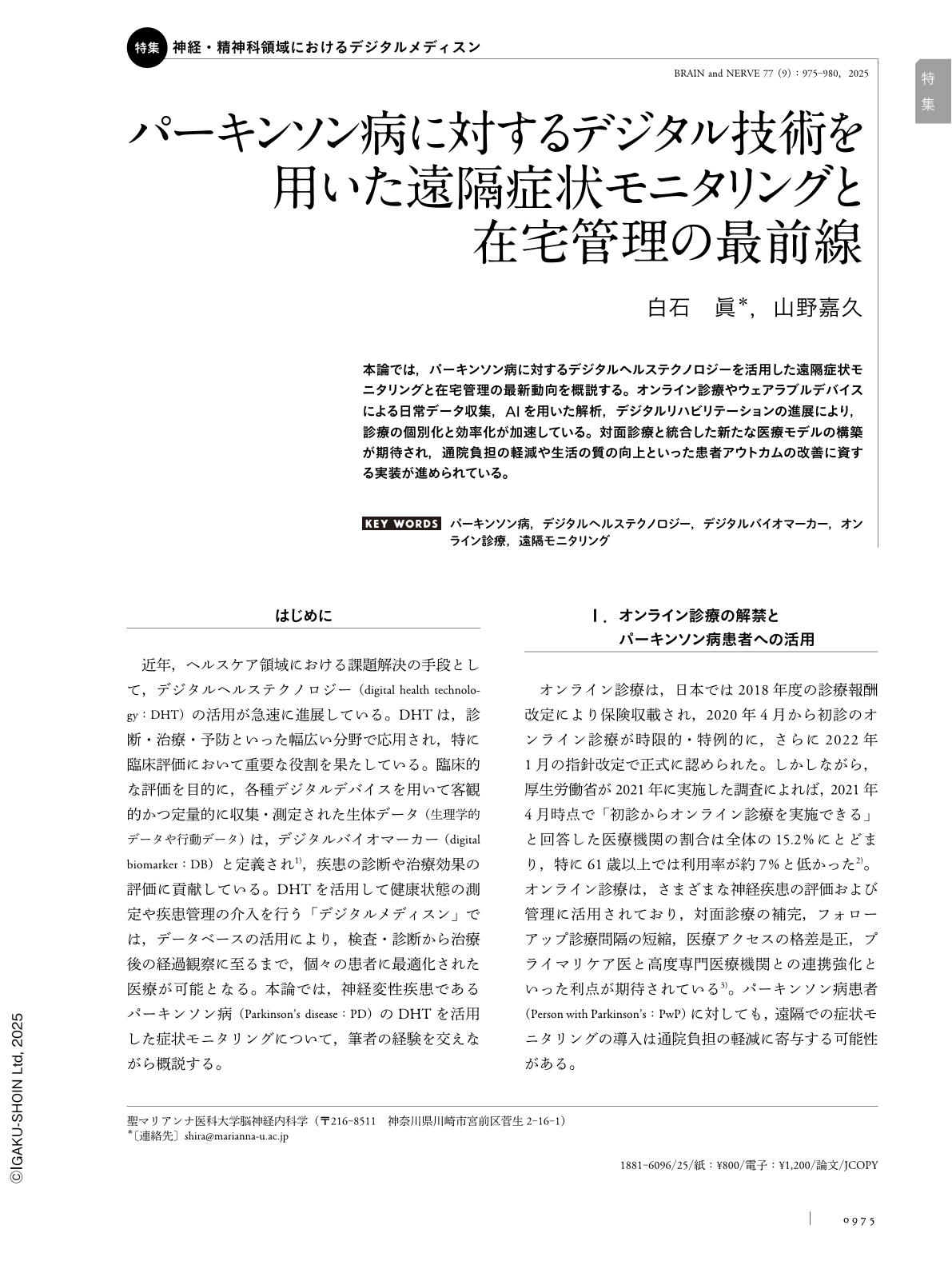Japanese
English
- 有料閲覧
- Abstract 文献概要
- 1ページ目 Look Inside
- 参考文献 Reference
本論では,パーキンソン病に対するデジタルヘルステクノロジーを活用した遠隔症状モニタリングと在宅管理の最新動向を概説する。オンライン診療やウェアラブルデバイスによる日常データ収集,AIを用いた解析,デジタルリハビリテーションの進展により,診療の個別化と効率化が加速している。対面診療と統合した新たな医療モデルの構築が期待され,通院負担の軽減や生活の質の向上といった患者アウトカムの改善に資する実装が進められている。
Abstract
This review outlines the recent advances in the use of digital health technologies (DHTs) for remote symptom monitoring and home-based management of Parkinson's disease (PD). In the adoption of telemedicine, wearable sensors for daily activity tracking, artificial intelligence-driven analysis, and digital rehabilitation have accelerated the shift toward more personalized and efficient care. These digital approaches offer objective, continuous, and scalable assessment methods that complement the traditional face-to-face evaluations. Notably, they provide valuable tools for addressing fluctuations in symptoms and supporting patient self-management. Their integration with conventional care models is progressing, and pilot implementations have attained promising results in reducing patient burden, improving accessibility, and enhancing quality of life. Furthermore, evidence from large-scale remote trials and real-world observational studies further supports the clinical utility of these technologies. As healthcare systems worldwide adapt to aging populations and the increasing demand for chronic disease management, DHT-based approaches are expected to play an increasingly central role in PD care. This session highlights the key findings from recent initiatives, including our own clinical experiences with hybrid platforms that combine wearable devices, telemedicine, and patient-reported outcomes.

Copyright © 2025, Igaku-Shoin Ltd. All rights reserved.


